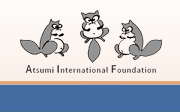Shared Growth Seminar
-
SGRA Sustainable Shared Growth Seminar 34 Report
SGRA Sustainable Shared Growth Seminar 34 Report Real Property Valuation and Assessment Reform with Laguna Municipal Treasurers Posted: January 2023 In collaboration with College of Public Affairs and Development of the University of the Philippines Los Baños Seminar Report (Lite Version) (HD Version available on request from editor)






